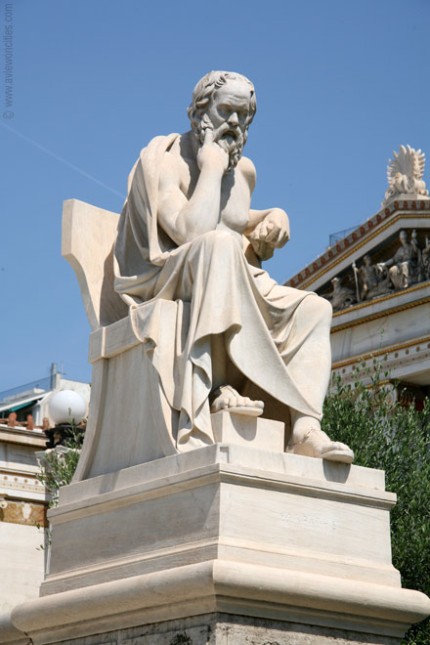Philosophy in Christianity
In a recent conversation, a Christian friend came back from a college philosophy class a bit puzzled and questioning some issues of faith.
“Aaron, I’ve read the bible through, and yet I find some of what is quoted in the bible is nearly VERBATIM what some “pre-Christ” philosophers expressed in their writings…This has me a bit thrown and put off as I am questioning some aspects of faith as a result…”
I will say right up front, I’m not a Christian “Apologist”. Actually, in most cases, I refuse to debate Christianity with people because most of the time they are just looking for an argument, and I LIKE TO WIN too much! I’ve realized over the years that one of my greatest pitfalls is Pride and I would argue in the name of “debate” to prove that I was right, they were wrong, and then sit back and bask in the glory of the “win” feeling so proud of myself and how smart I am and “how I really made that guy look stupid for picking a fight with me”… and it hit me… At what cost…? I’m not better for it, in their eyes i’m the jerk who made them look stupid and they are no closer to seeing things from my point of view because we both believe that our perspective is right and neither of us was intent on changing anyone’s perspective, but simply proving that we could win… TDFS! (Thumbs down, fart sound) So, anyone reading this that wants to pick a fight and debate… don’t waste your time… I won’t respond… This is just me weighing what seems very logical to me…
Back to the Philosophy…
Any time you read ANYTHING in literature, you have to consider a few things… Who wrote it, when was it written, who were they writing to and are there any examples, idioms, phrases, or figures of speech that would be understood by the audience that may not translate directly to us reading it today?
I think that analyzing the bible from that perspective may be a possible explanation for my friend’s faith quandary and I wanted to share it briefly with you today for the sake of personal consideration in the event that you are ever posed the same question.
There are likely 40 different people who helped pen the words written in the bible. So the first question “Who wrote it” can be a very lengthy description. Suffice to say, most of the writers were learned men of their day. In the new testament, Luke was a Doctor and Paul was among the most elite scholars in his society as a Pharisee who was also the son of a Pharisee- an EXTREMELY educated sect.
Much of what my friend questioned was taken from the New Testament, which covers “when it was written” and of course if you have studied the bible, you know most of the books of the new testament are named after “who it was written to” (so we have those bases covered).
So the next step in the analysis is, are there any examples, idioms, phrases, or figures of speech that would be understood by the audience that may not translate directly to us reading it today?
I feel like this answer is a logical thought to process considering the question he raised to me about these philosophical quotes in the bible. Rome was a SUPER POWER in this day and occupied most of the known world in the time of Christ. Libraries were built throughout much of the Roman empire and the teachings of the esteemed Greek and Roman philosophers would likely be as commonly taught then as they are now (if not more).
If we look at the bible through the lens of who it is written to and the time it was written, one could logically deduce that it would be no more uncommon for an educated individual to quote something that would be commonly understood by the people he was writing to for the sake of making an intended point as it would for a pastor today to make an intended parallel by quoting a famous speech or author , “I have a dream”, “Four score and seven years ago”, “Friends, Romans, countrymen lend me your ear…”, “It was the best of times, it was the worst of times…”, etc… Or perhaps quoting a famous song by a musical legend, “I did it my way”, “Let it be, let it be…”, “We are the champions…”, or the one I’ve heard far too many baby boomer pastors quote still 20 years later- “U Can’t touch this…”
The point is, I think it actually makes sense to quote the respected philosopher in that day if you are intending to gain the respect and acceptance of the audience who would understand the intended parallel and may not have been educated in your (the authors) Hebrew culture.
Recognizing that most of the world would have been educated in Roman culture and much of the new testament was written to individuals in those Roman provinces, by people who were raised under Roman rule and occupied by Rome. I don’t believe that it cheapens or brings into question the validity of what was written, but maybe the opposite, making what was written MORE relevant to those of that day and even to todays student of history that would like to understand the relevance of the bible from a historical perspective… I think understanding the relevance “then”, actually makes it logically more relevant today if we understand the intent of the author (and possibly even the educational level) of the one making the parallel when he wrote it.
Those are just my thoughts… I just wonder…Is it possible…?

